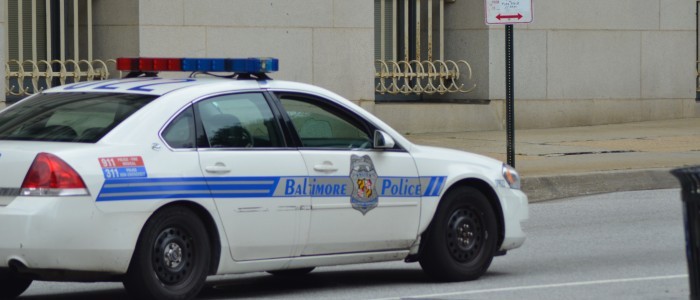Will Baltimore Police Get New Venue?

It is highly probable that the six officers charged in Freddie Gray’s death will attempt to have the case removed from Baltimore City. A change of venue would be based on the obvious: with a unprecedented amount of public attention following Gray’s death, it will be almost impossible to find unbiased jurors in Baltimore City.
The result of this effort by the officers’ defense lawyers could go a long way to determining whether the State gets convictions. My guess is that guilty verdicts will be hard to come by outside Baltimore City.
The law sets a high bar for obtaining a change of venue. Usually courts will try to ensure a fair jury through voir dire, when the judge and parties screen the jurors for bias that would make them more or less likely to convict. Biased jurors are then stricken for cause. This is the preferred method of dealing with pretrial publicity.
But this case – the trial of the six officers – would appear to be an exception. With nonstop media coverage, and the explosion of social media, Baltimore has never seen anything like this. If ever a change of venue is merited, it is in this case. Here is the legal standard for change of venue, excerpted from a 1981 Maryland case called Simms v. State (citations and quotes omitted).
The question of whether a non-capital case should be removed to another jurisdiction is one which rests within the discretion of the trial court. The exercise of that discretion, however, is reviewable on appeal. Moreover, the party seeking removal has the burden of showing that he has been prejudiced by adverse publicity and that the voir dire examination of prospective jurors, available to him, would not be adequate to assure him a fair and impartial trial. It is not to be presumed, however, that an unbiased jury cannot be had. Only where the pretrial publicity in and of itself is so massive and widespread that it is clearly prejudicial, or where the publicity is so inherently prejudicial that it “saturated the community” is the remedial step of voir dire meaningless. A party moving for a change of venue carries a heavy burden of satisfying the court that there is so great a prejudice against him that he cannot obtain a fair and impartial trial. Generally, in order to meet this burden, the defendant must show in non-capital cases (1) that the newspaper article (or pretrial publicity) is prejudicial, (2) that a juror has read the prejudicial newspaper article (or otherwise been exposed to the prejudicial publicity), and (3) that the juror’s decision at the trial was influenced by that newspaper article (or pretrial publicity). Voir dire examination is usually a sufficient mechanism to insure that a defendant obtains a fair and impartial trial despite the pretrial publicity. This may be satisfied if each venireman empaneled indicates that he has not formed an opinion of defendant’s guilt or innocence as a result of the pretrial publicity or that the pretrial publicity would not in any way derogate from his ability to give the defendant a fair and impartial trial… The United States Supreme Court stated that extensive knowledge in the community of either the crime or the putative criminal is not sufficient by itself to render a trial constitutionally unfair.
Simms v. State, 49 Md. App. 515, 518-19(1981)
